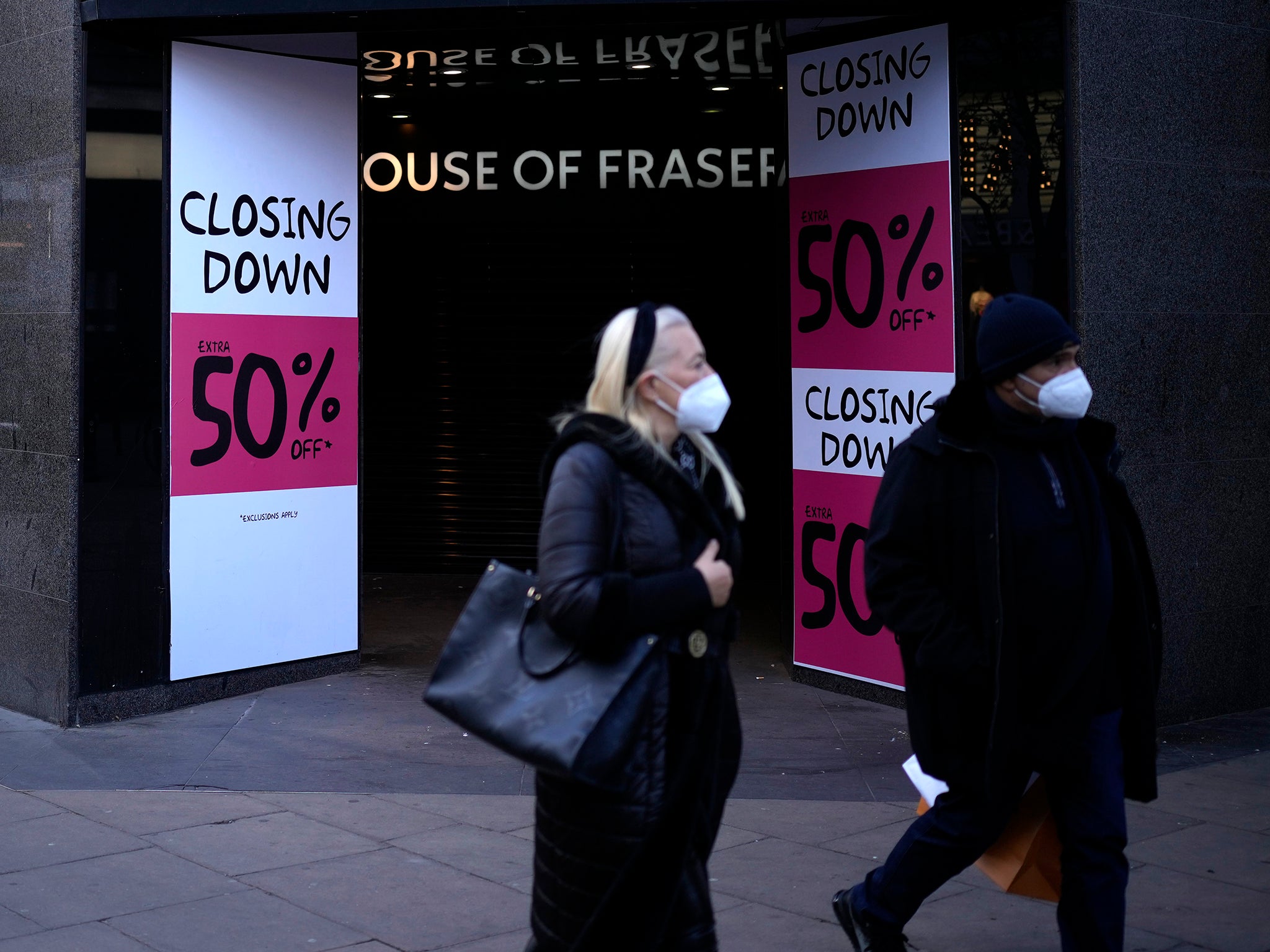Consumer confidence falls to lowest level on record as inflation fears deepen
Index of optimism about the economy’s future plunges to minus 41 – the worst since polling began in 1974

Your support helps us to tell the story
From reproductive rights to climate change to Big Tech, The Independent is on the ground when the story is developing. Whether it's investigating the financials of Elon Musk's pro-Trump PAC or producing our latest documentary, 'The A Word', which shines a light on the American women fighting for reproductive rights, we know how important it is to parse out the facts from the messaging.
At such a critical moment in US history, we need reporters on the ground. Your donation allows us to keep sending journalists to speak to both sides of the story.
The Independent is trusted by Americans across the entire political spectrum. And unlike many other quality news outlets, we choose not to lock Americans out of our reporting and analysis with paywalls. We believe quality journalism should be available to everyone, paid for by those who can afford it.
Your support makes all the difference.Consumer confidence has plunged to its lowest level on record as households face a “stark new reality”, a report has warned.
GfK’s consumer confidence index fell one point in June to minus 41, the lowest level recorded by the survey since it began in 1974.
Confidence in the economy for the next 12 months fell one point to minus 57 – a drop of 55 points since last year.
People’s confidence in their personal finances fell three points to minus 28 – 39 points lower than this time last year.
The major purchase index, a measure of confidence in buying big-ticket items, remained at minus 35, taking it to 30 points below last June’s figure.
It came as a separate report on businesses’ expectations signalled that a recession is on the way.
The latest S&P Global/CIPS flash UK purchasing managers index (PMI) survey showed plummeting business confidence.
Expectations fell at the fastest monthly rate since the start of the pandemic, indicating that growth remained at its lowest level for more than a year in June.
The report showed a reading of 53.1 for June, unchanged from the 15-month low recorded in May. A reading above 50 indicates growth.
S&P warned that such a low level of business optimism has historically “signalled an imminent recession” is on the way.
Chris Williamson, chief business economist at S&P Global Market Intelligence, said the economy is starting to look like it is “running on empty”.
He added: “The weakness of the broad flow of economic data so far in the second quarter points to a drop in GDP [gross domestic product], which the forward-looking PMI numbers suggest will gather momentum in the third quarter.”
Prospects for the UK economy have worsened rapidly this year as households and businesses are hammered by huge increases in costs for food, fuel and energy.
Further increases are in store later this year, with inflation expected to hit 11 per cent. The Bank of England now forecasts that the economy will shrink in the second quarter of the year.
A summer of strike action threatens to deal another blow. Rail workers walked out this week, causing shoppers to stay at home. High street footfall was 16.1 per cent lower to 1pm on Thursday than on the same day last week, and down 8.5 per cent on Tuesday, retail analysts Springboard said.
In central London, the drop from last week was more than double the national average, down 34.4%, compared with a fall of 27 per cent on Tuesday.
Compared with pre-pandemic 2019, footfall was down 32.9 per cent across all high streets on Thursday, compared with a drop of 19.6 per cent on Tuesday, and down 52.1% in central London, compared with a fall of 49.2 per cent on Tuesday.
Joe Staton, from GfK, said: “With prices rising faster than wages, and the prospect of strikes and spiralling inflation causing a summer of discontent, many will be surprised that the index has not dropped further.
“The consumer mood is currently darker than in the early stages of the Covid pandemic, at the result of the 2016 Brexit referendum, and even the shock of the 2008 global financial crisis, and now there’s talk of a looming recession.
“One thing is for sure: Britain faces a stark new economic reality and history shows that consumers will not hesitate to retrench and tighten their purse strings when the going gets tough.”
Linda Ellett, UK head of retail and leisure consumer markets at KPMG, said that, while consumer confidence continues to slump, total retail sales are not falling quite as fast.
Higher prices were causing people to cut back on some discretionary items. “But there are tailwinds still supporting spending elsewhere, in the shape of high employment, pandemic savings levels, and desire for experience-based spending,” Ms Ellett said.
“Travel, hospitality and leisure spend [are] boosting sales of clothing, footwear and accessories, but could be a seasonal impact that weakens when summer ends.
“As essential costs continue to rise, so does the risk that further discretionary goods demand reduces in line with the consistently low levels of consumer confidence that we are seeing.”
Join our commenting forum
Join thought-provoking conversations, follow other Independent readers and see their replies
0Comments